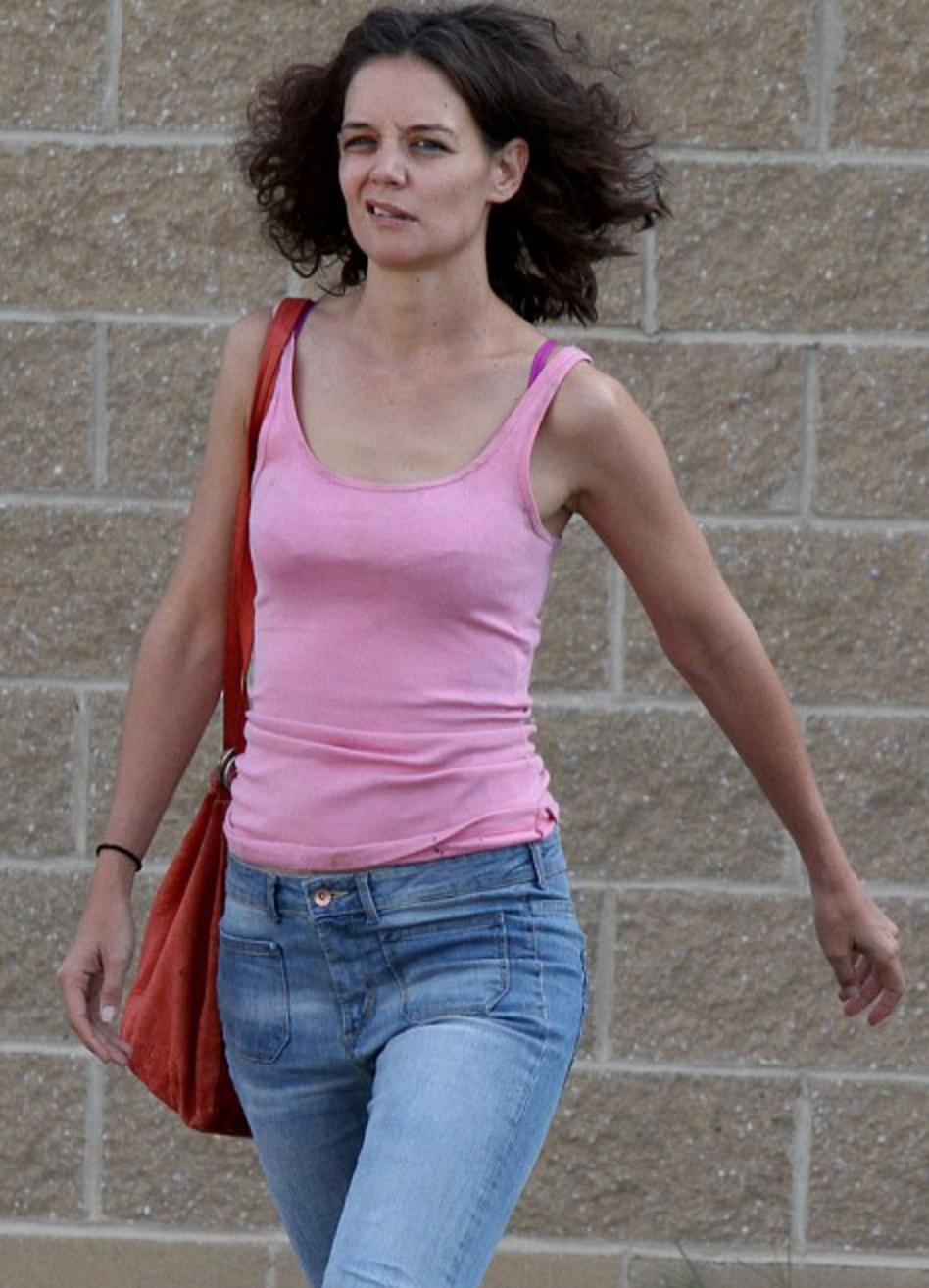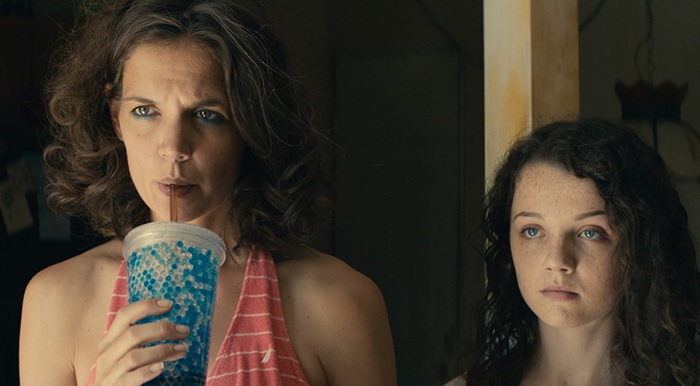 I’ve never really understood the Katie Holmes phenomenon. She was appropriately terrible on the ‘90s WB dramedy “Dawson’s Creek” as an ugly duckling who remained fascinatingly awkward upon blooming into a swan. Afterward, “Pieces of April” aside, she didn’t have much of a career to be eclipsed by her headline-grabbing, mid-aughts marriage to megastar Tom Cruise. In fact, until recently, Holmes’s biggest achievement seemed to be escaping the notoriously tenacious claws of Scientology by winning custody of daughter Suri after leaving her couch-jumper of a husband.
I’ve never really understood the Katie Holmes phenomenon. She was appropriately terrible on the ‘90s WB dramedy “Dawson’s Creek” as an ugly duckling who remained fascinatingly awkward upon blooming into a swan. Afterward, “Pieces of April” aside, she didn’t have much of a career to be eclipsed by her headline-grabbing, mid-aughts marriage to megastar Tom Cruise. In fact, until recently, Holmes’s biggest achievement seemed to be escaping the notoriously tenacious claws of Scientology by winning custody of daughter Suri after leaving her couch-jumper of a husband.
So it’s a headline unto itself that “All We Had,” the tabloid star’s directorial debut, is un-terrible. But faint praise aside, it would be an admirable effort for any first-time filmmaker, let alone a lady not exactly known for weathering lean times. An adaptation of Annie Weatherwax’s eponymous novel, it focuses on problem drinker Rita (Holmes) and her precocious fifteen-year-old daughter, Ruthie (Stefania Owen, “The Carrie Diaries”), as they navigate poverty and homelessness. Understated yet deeply felt, Holmes’ portrait of people who only have known hard times never strikes a false note, even when Josh Boone and Jill Killington’s adapted screenplay wanders too far afield.
We meet the mother and daughter when they’re at the end of a tether that doesn’t seem like it’s ever been promising. Unable to pay their bills, the two have hit the road and are heading East. (Rita is convinced Ruthie will attend Harvard if they live close enough to its campus.) When their car breaks down, Rita attempts to pay for the repair by offering herself sexually to a mechanic; when he refuses, the two lose the last of their cash. Desperate for a meal, the two try a “dine and dash,” but when their wheels die yet again, Rita decides it’s a sign: “Our car broke down outside a diner we ripped off. If that isn’t the Lord’s work, I don’t know what is.” It’s a cheesy line, as most are here, but a halter-clad, heavily made-up Holmes delivers them with such a convincing desperation that she keeps us on her side.
The diner’s owner, Marty (the aptly named Richard Kind), takes pity on the mother-daughter duo, and Rita begins waitressing with his transgender niece, Pam (Eve Lindley), who is warier than her uncle but equally warmhearted. Soon, Ruthie and Rita have saved enough to move out of the restaurant’s back room and buy a small house in foreclosure; school outcast Ruthie even finds a friend in Pam and a bit of sympathy in the school principal who lives across the street. But trouble is never too far afield, especially, as Ruthie observes, Rita has singularly crap taste in men. Sure enough, her real estate agent boyfriend (Mark Consuelos) takes a breather when Ruthie gets sick and they lose their home in the 2008 housing market collapse. But even when Rita begins dating kindred spirit Lee (Luke Wilson), a widowed dentist whom she meets at an Alcoholics Anonymous meeting and who doesn’t seem to have a mean bone in his body, Ruthie remains on edge. It’s hard to make lemonade when life throws you so many lemons.
You’ll have to forgive the cliché; the bad dialogue is kind of infectious. But that’s really the only true drawback of this film, which Holmes lenses expertly. Lonely winter light bathes the Upstate New York working-class homes and abandoned storefronts, and such social issues as the Fannie Mae crisis, LGBT rights, and school bullying thread so naturally  that they never devolve into preachiness. Best is the chemistry between Owen and Holmes. It’s not just that the two look related, with their doe eyes, dark hair, and peaches-and-cream dimples. It’s that they radiate a chemistry that is painful and beautiful all at once. In their shared bond lives all the fragmented love, resentment, and entwined self-esteem that exists between most mothers and daughters, and it is conveyed with enough of a dry eye that we don’t feel manipulated when it makes us cry. This is an assured, delicately ramshackle film that never condescends to a swath of Americans who are rarely captured without an agenda, and it makes me eager to see what its director can accomplish with a finer script. Who knew, Mz. Holmes?
that they never devolve into preachiness. Best is the chemistry between Owen and Holmes. It’s not just that the two look related, with their doe eyes, dark hair, and peaches-and-cream dimples. It’s that they radiate a chemistry that is painful and beautiful all at once. In their shared bond lives all the fragmented love, resentment, and entwined self-esteem that exists between most mothers and daughters, and it is conveyed with enough of a dry eye that we don’t feel manipulated when it makes us cry. This is an assured, delicately ramshackle film that never condescends to a swath of Americans who are rarely captured without an agenda, and it makes me eager to see what its director can accomplish with a finer script. Who knew, Mz. Holmes?
This originally was published at Signature.
